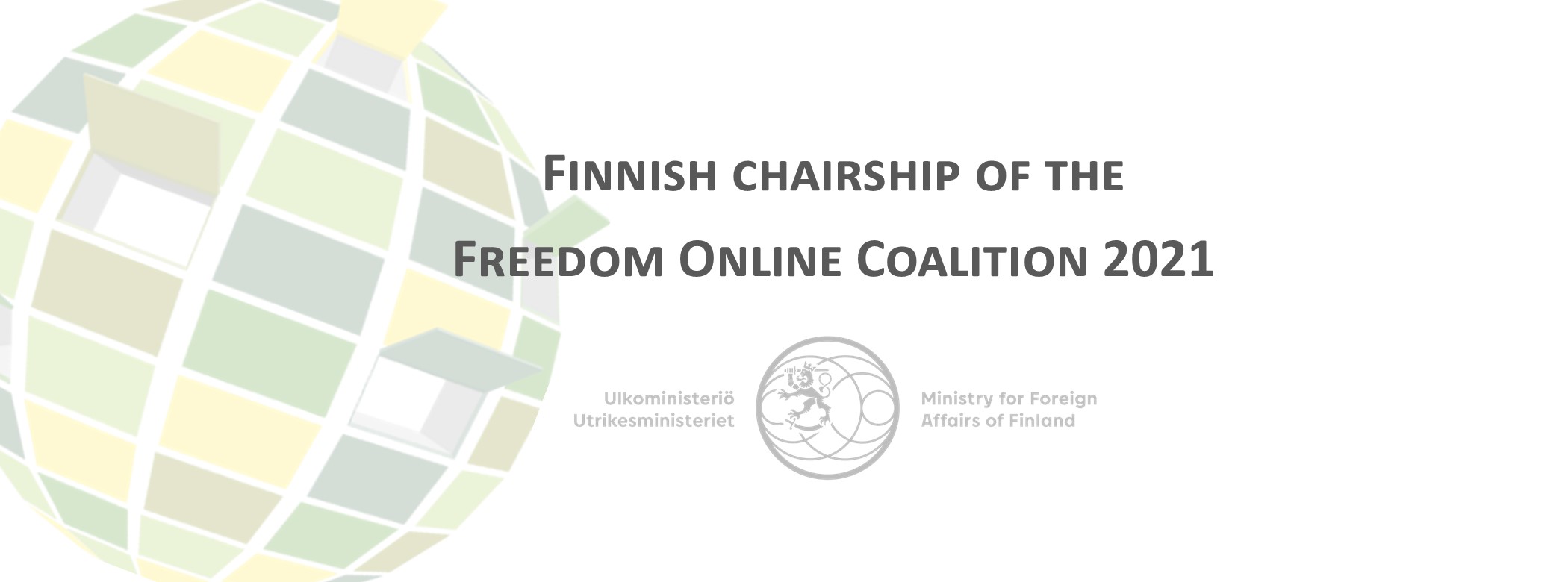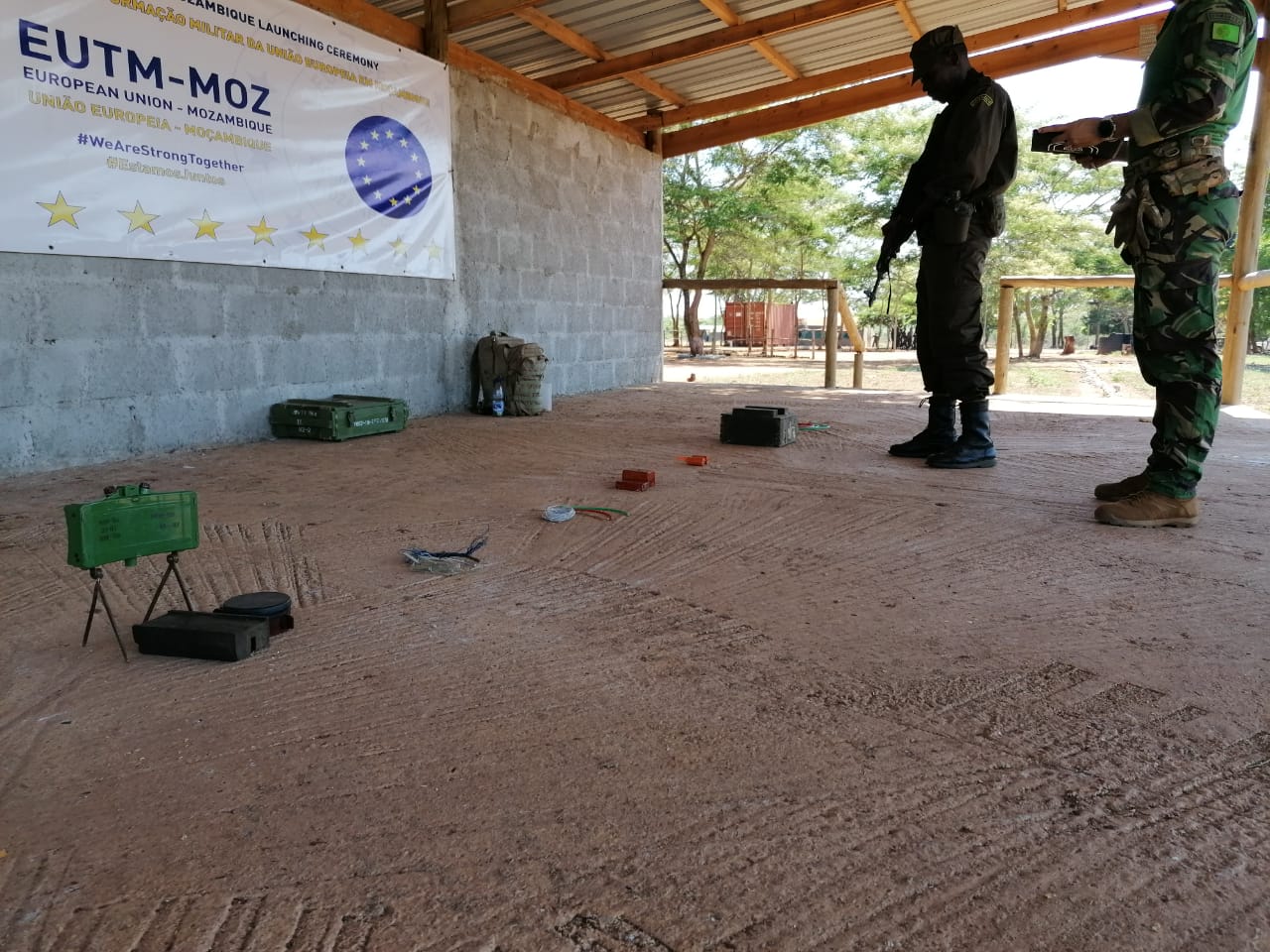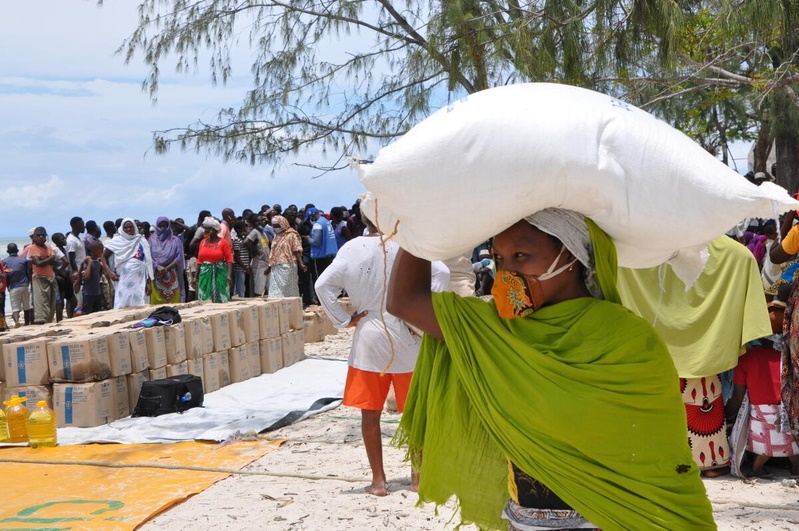NordenBladet — Finland has chaired the Freedom Online Coalition (FOC) in 2021. The Chairship culminated in a Ministerial Meeting on the state and future of an open and safe internet in December, hosted by Minister for Foreign Affairs Pekka Haavisto. The Freedom Online Coalition is the most important global intergovernmental human rights organisation that promotes the realisation of human rights on the internet. The FOC focuses on the development of guidelines related to the internet and digitalisation, diplomatic coordination as well as cooperation with civil society, the scientific Community and businesses.During the past year under Finland’s Chairship, the FOC increased its visibility in the UN Human Rights Council, and diplomatic FOC networks met in Geneva (UN Human Rights Council), Paris (UNESCO) and New York (UN). The latter meeting was held in cooperation with the United States. Networking with the business world in Silicon Valley is promoted by the Silicon Valley Working Group, set up under the leadership of Finland and Austria. Efforts have been made to strengthen the FOC’s dialogue with its African member states and human rights defenders working in the African Union by means of organising FOC events in Africa.Ministerial meeting examined the transformation in the digital realm in the past decadeThe FOC Ministerial Meeting on 3 December brought together foreign ministers from almost all 34 FOC member governments to discuss the state of a free, open and fair internet. The digital transition has created new opportunities for democratic participation. The internet and digital technologies have created new ways of earning a living and obtaining information, and developed civic participation platforms where diverse voices can be heard. These new ways and platforms also empower citizens to question discrepancies and shortcomings in the conduct of those in power.However, the digital divide continues to persist, even though the number of internet users is increasing. Disinformation as well as cyberbullying and harassment, which are often aimed at women and young people, undermine trust in the internet environment and democracy. When authoritarian states use the internet for political purposes, it is important to collaborate with different actors and persist in defending the development of an internet where human rights are fulfilled. Keynote speakers: The FOC’s role is more important than ever beforeMinister for Foreign Affairs Pekka Haavisto, who hosted the event, said that the FOC’s role as a defender of human rights is now more important than ever before. The lack of digital equality is a fact not only between the global north and south, but also in Finland. It is important to pay attention to how different population groups, such as older people, can access services in an increasingly digital world.A globally compatible and open internet can prevent global confrontation and strengthen the rules-based international system and the realisation of human rights.The freedom Online Coalition was established in 2011 under the leadership of then U.S. Secretary of State Hillary Rodham Clinton and Dutch Minister of Foreign Affairs Uri Rosenthal. In her opening speech at this year’s Ministerial Meeting, Secretary Clinton strongly criticised major internet and tech companies and stated that they are enabling authoritarian regimes to restrict civil rights. They also often hide human rights violations to achieve economic profits.Clinton stressed that significance of the future of the Freedom Online Coalition in the changing world, where the need to defend democracy against the rise of authoritarian regimes has increased.The panel discussion stressed the need of increasingly strong contacts with countries combating the power for the internet. It is important to build contacts especially with developing countries and with actors in the corporate, civil society and research communities. As required, the FOC should be able to take a stand when human rights are violated in any single country.Helsinki Declaration guides us towards a more equal world in the 2020sThe Ministerial Meeting published the Freedom Online Coalition 10th Anniversary Helsinki Declaration, which gives guidance for the FOC in the 2020s. In the jubilee year declaration negotiated under Finland’s leadership, the foreign ministers of the FOC member states reaffirmed their commitment to defend human rights on the internet.In the Declaration, the FOC sends a strong message to promote a free, open and safe internet open to all as well as to advance human rights-based digitalisation. The FOC members will promote these goals by exerting more visible influence on UN human rights forums and regional forums as well as through closer cooperation with the FOC’s advisory network consisting of actors from different fields.Canada will hold the Chairship of the FOC in 2022. During its Chairship, Canada will focus on access to the internet, digital literacy, civic engagement and a secure online environment for all.Read more about the FOC Helsinki Declaration at the Freedom Online Coalition’s website.Read more about Finland’s Chairship on the Ministry’s webpage.Materials on the Freedom Online Coalition websiteFOC 10th Anniversary Helsinki DeclarationFreedom Online Conference Chair’s SummaryRecording of the Ministerial Meeting
The Freedom Online Coalition is the most important global intergovernmental human rights organisation that promotes the realisation of human rights on the internet. The FOC focuses on the development of guidelines related to the internet and digitalisation, diplomatic coordination as well as cooperation with civil society, the scientific Community and businesses.During the past year under Finland’s Chairship, the FOC increased its visibility in the UN Human Rights Council, and diplomatic FOC networks met in Geneva (UN Human Rights Council), Paris (UNESCO) and New York (UN). The latter meeting was held in cooperation with the United States. Networking with the business world in Silicon Valley is promoted by the Silicon Valley Working Group, set up under the leadership of Finland and Austria. Efforts have been made to strengthen the FOC’s dialogue with its African member states and human rights defenders working in the African Union by means of organising FOC events in Africa.Ministerial meeting examined the transformation in the digital realm in the past decadeThe FOC Ministerial Meeting on 3 December brought together foreign ministers from almost all 34 FOC member governments to discuss the state of a free, open and fair internet. The digital transition has created new opportunities for democratic participation. The internet and digital technologies have created new ways of earning a living and obtaining information, and developed civic participation platforms where diverse voices can be heard. These new ways and platforms also empower citizens to question discrepancies and shortcomings in the conduct of those in power.However, the digital divide continues to persist, even though the number of internet users is increasing. Disinformation as well as cyberbullying and harassment, which are often aimed at women and young people, undermine trust in the internet environment and democracy. When authoritarian states use the internet for political purposes, it is important to collaborate with different actors and persist in defending the development of an internet where human rights are fulfilled. Keynote speakers: The FOC’s role is more important than ever beforeMinister for Foreign Affairs Pekka Haavisto, who hosted the event, said that the FOC’s role as a defender of human rights is now more important than ever before. The lack of digital equality is a fact not only between the global north and south, but also in Finland. It is important to pay attention to how different population groups, such as older people, can access services in an increasingly digital world.A globally compatible and open internet can prevent global confrontation and strengthen the rules-based international system and the realisation of human rights.The freedom Online Coalition was established in 2011 under the leadership of then U.S. Secretary of State Hillary Rodham Clinton and Dutch Minister of Foreign Affairs Uri Rosenthal. In her opening speech at this year’s Ministerial Meeting, Secretary Clinton strongly criticised major internet and tech companies and stated that they are enabling authoritarian regimes to restrict civil rights. They also often hide human rights violations to achieve economic profits.Clinton stressed that significance of the future of the Freedom Online Coalition in the changing world, where the need to defend democracy against the rise of authoritarian regimes has increased.The panel discussion stressed the need of increasingly strong contacts with countries combating the power for the internet. It is important to build contacts especially with developing countries and with actors in the corporate, civil society and research communities. As required, the FOC should be able to take a stand when human rights are violated in any single country.Helsinki Declaration guides us towards a more equal world in the 2020sThe Ministerial Meeting published the Freedom Online Coalition 10th Anniversary Helsinki Declaration, which gives guidance for the FOC in the 2020s. In the jubilee year declaration negotiated under Finland’s leadership, the foreign ministers of the FOC member states reaffirmed their commitment to defend human rights on the internet.In the Declaration, the FOC sends a strong message to promote a free, open and safe internet open to all as well as to advance human rights-based digitalisation. The FOC members will promote these goals by exerting more visible influence on UN human rights forums and regional forums as well as through closer cooperation with the FOC’s advisory network consisting of actors from different fields.Canada will hold the Chairship of the FOC in 2022. During its Chairship, Canada will focus on access to the internet, digital literacy, civic engagement and a secure online environment for all.Read more about the FOC Helsinki Declaration at the Freedom Online Coalition’s website.Read more about Finland’s Chairship on the Ministry’s webpage.Materials on the Freedom Online Coalition websiteFOC 10th Anniversary Helsinki DeclarationFreedom Online Conference Chair’s SummaryRecording of the Ministerial Meeting
Source: Valtioneuvosto.fi
 The aim of the EU training mission is to support the Mozambican armed forces so that they can restore peace and security to Cabo Delgado. Photo: EUTM
The aim of the EU training mission is to support the Mozambican armed forces so that they can restore peace and security to Cabo Delgado. Photo: EUTM The arrival of international troops has helped the delivery of humanitarian aid. Photo: WFP
The arrival of international troops has helped the delivery of humanitarian aid. Photo: WFP